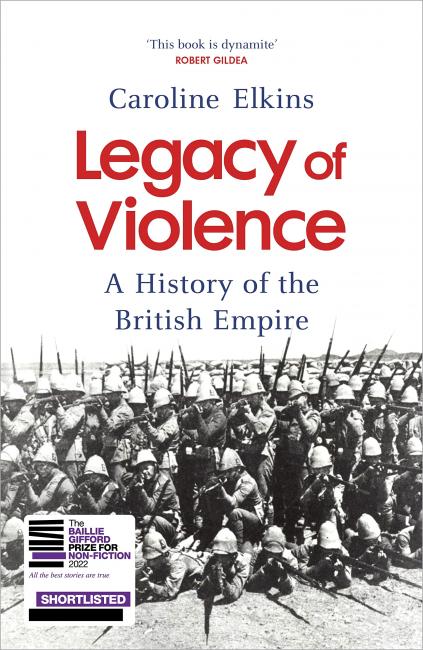At 875 pages, including a 50-page bibliography and 90 pages of references, this is a huge tome, and a serious investment of time.
Those looking for a much shorter primer covering much of the same ground may want to check out John Newsinger’s The Blood Never Dried: A People’s History of the British Empire (Bookmarks, 2006).
However, those who persist will discover a hugely impressive tour de force, providing a deep dive into the massive violence that ‘was endemic to the structures and systems’ of the British empire.
‘Repression was about much more than re-establishing British authority,’ writes Caroline Elkins, professor of history and of African and African American Studies at Harvard university. ‘Violence enacted on bodies, minds, souls, cultures, landscapes, communities, and histories was intimately connected to the civilising mission’s developmentalist dogma’. In other words, she argues, violence was ‘inherent’ to the ideas of liberal imperialism that underpinned the British empire.
Elkins is particularly interested in ‘legalised lawlessness’ – how the British state, in an attempt to maintain control, ‘often rendered their lawless behaviour legal by amending old regulations and creating new ones’.
Focusing on India, Malaya, Kenya, the Irish independence struggle and the Arab Revolt in 1930s Palestine, Elkins tracks how key colonial officials moved, along with their repressive tactics and methods, between uprisings.
By the time a state of emergency was declared in 1950s Kenya, the agents of empire had honed a horrifying array of torture techniques, including electric shocks, use of fire and hot coals, inserting snakes, vermin, broken bottles and hot eggs into men’s rectums and women’s vaginas, crushing bones and teeth, slicing off fingers and castrating men.
Much of the book was a real education for me, from the burning of Cork in 1920 to the destruction of villages and use of humans as mine-sweepers in Palestine.
In response to the nationalist insurgency in Malaya the colonial authorities ‘launched the British Empire’s largest forced migration since the era of trade in enslaved people’, relocating over 573,000 people in ‘resettlement areas’. Surrounded by barbed wire, and with guards strictly controlling the inhabitants’ movements, one refugee described it as ‘like a concentration camp’.
There was, of course, significant resistance to Britain’s terror.
Though the focus tends to be on violent opposition, there is a fascinating section on Black intellectuals from the colonies, such as George Padmore, CLR James and Jomo Kenyatta, working with left-wing activists in 1930s London. Together they published a huge amount of anti-colonial writings.
Elkins quotes from the War Office’s Manual of Military Law: ‘the existence of an armed insurrection would justify the use of any degree of force necessary effectually to meet and cope with the insurrection’. This suggests that nonviolent resistance, when it was used on a large scale, may have caused the most problems for the British.
Speaking to the Guardian in August about a Channel 4 documentary looking at the colonial repression in Kenya, Dutch historian Niels Boender noted the disconnect between the current public debate and the expert research and discussion. ‘You find that the [public] debate is sort of stuck… 50 years in the past,’ he said: ‘In the public level, the debate is: “Was the empire good?” Whereas we’re debating “How bad was it?” and “In what ways was it bad?”’
No doubt the British policy of incinerating documents that ‘might embarrass Her Majesty’s Government’ or ‘members of the Police, military forces, public servants or others’ – 3.5 tons of paperwork in Kenya, apparently – has played a role in this mass ignorance.
Legacy of Violence might not gain a large readership but hopefully those activists and concerned citizens who work their way through it can use it as a tool and resource to inform the general public moving forward.


